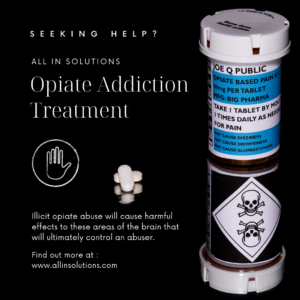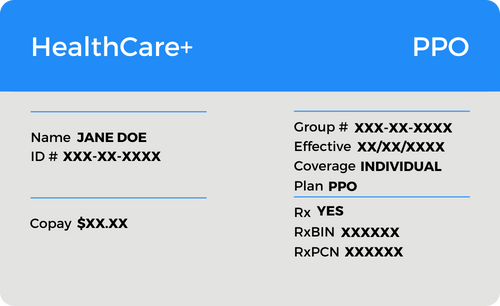Addiction Treatment for Chronic Pain Patients
Chronic Pain & Addiction Recovery
Chronic pain refers to pain that lasts over 12 weeks. It ranges from severe or dull continuous pain caused by significant injuries or illnesses. The pain can be debilitating and impact one’s ability to lead an everyday life. For example, chronic pain patients face difficulty focusing at work or sleep. The fact is that chronic pain affects a large number of people.
The Journal of Neuroscience states that chronic pain affects over 100 million Americans. However, since the pain is difficult to diagnose as it does not always cause outward symptoms, doctors would struggle to offer long-term relief to patients. Instead, they have to look for clues behind the cause of the pain and start treatments for mitigating the chronic pain symptoms.
Causes of Chronic Pain
The following are some of the reasons why someone might experience chronic pain:
- An Altered nervous system which does not receive pain signals correctly even when there is no source of pain or injury
- Congenital deformities which cannot be corrected surgically, including spine and back deformities
- Chronic illness like rheumatoid arthritis, which causes chronic pain as a symptom
- Acute conditions, diseases, and illnesses such as an MRSA infection as well as others that require multiple treatments
- Acute injuries like a sprained ankle which causes pain and takes much longer to recover
There are certain cases where chronic pain can seem impossible to diagnose, which would make it difficult for doctors to find out what might be causing the pain. The doctor would have to find ways to treat the pain rather than identify the root cause in such a situation. This might require long-term chronic pain management strategies for some individuals.
Signs and Symptoms
Chronic pain can leave an individual exhausted. One might experience mental and emotional changes as well. Lasting pain ranges from mild to excruciating pain that can come constantly or intermittently. The pain could either be inconvenient or debilitating and anywhere in between. The fact is that chronic pain feels like shooting pains, electrical surges, burning sensations, or aches. Stiffness, tightness, and soreness are expected if the individual suffers from the condition consistently. One is likely to experience any of the following due to chronic pain.
- Pelvic Pain
- Sinus Pain
- Shoulder Problems
- Neck Pain or Backaches
- Joint Pain
- Headaches
- Pain After Surgery
- Muscle or Nerve Pain
Current estimates reveal that about 20 percent of the population is dealing with chronic pain. If the condition persists or worsens for a long time, one might suffer from anxiety or depression regarding when the next time they experience pain. These emotions reduce the number of natural painkillers such as dopamine, serotonin, and oxytocin in the brain, increasing the severity of the pain.
According to some researchers, chronic pain weakens the immune system and makes the pain worse by exposing the individual to a greater risk of suffering from other illnesses. However, the symptoms of chronic pain go beyond just the pain. The truth is that chronic pain affects other aspects of life. Common symptoms caused by chronic pain are mentioned below:
- Nausea
- Decreased Appetite
- Mood Swings
- Anxiety
- Depression
- Frequent Infections and Illnesses
- Sleeplessness and Fatigue
Every person experiences pain at different intensities. Chronic pain management is essential for making it through such difficult times. Physicians often use prescription medications to help patients manage pain, leading to chronic pain, opiate abuse, or chronic pain addiction.

Table of Contents:
- Chronic pain causes
- Signs of chronic pain
- Common chronic pain management medications
- Prescription drug abuse risks
- Commonly abused pain management medications
- Addiction treatment options for individuals with chronic pain
- Challenges of treating addiction in chronic pain patients
- Alternative pain management methods
Overcome Chronic Pain & Addiction
Compassionate addiction treatment & holistic pain management therapies help clients to get unstuck from opioid pain killers and alcohol without exacerbating chronic pain conditions
Contact UsCommon Prescription Medications for Chronic Pain Management
Around 58 percent of people suffering from chronic pain rely on prescription medication to make it through. These medications typically include the following:
- Antidepressants: These are used to decrease chronic pain by boosting the natural neurotransmitters available in the body. Tricyclic antidepressants such as clomipramine, doxepin, and amitriptyline tend to be a much better job when it comes to providing pain relief than other types.
- Over-the-Counter-Pain-Relievers: It is pretty common for doctors to advise patients to use over-the-counter pain medications such as NSAIDs, naproxen, ibuprofen, or acetaminophen. Although they are available over the counter, they tend to have long-term side effects, such as liver damage.
- Anticonvulsants: In some instances, drugs are prescribed to patients with epilepsy, such as pregabalin, gabapentin, and phenytoin. Even though it remains unclear how these drugs decrease chronic pain, experts find anticonvulsants to disrupt how pain signals flow in our bodies.
- Prescription Pain Medications: Oxycodone and hydrocodone-based drugs are commonly prescribed. Besides these, Vicodin, Percocet, morphine, codeine, and OxyContin are prescribed opioid medications. However, these drugs can cause chronic pain, opiate abuse, or addiction.
Risks of Abuse with Prescribe Medication
Chronic pain opiate abuse is more common than you think. However, nobody wants to deal with pain and discomfort. This is why they turn to prescription medications for chronic pain management. Most of the time, the prescriptions used include opioids which are highly addictive as they are derived from opiates. Generally, taking opioids helps relieve pain.
What these medications do is that they ensure that individuals feel better in a short period. But, it is natural for the body to develop a tolerance for opioids over time which makes it difficult for small doses to offer the same effect. This leads to people taking more significant quantities of the medication to manage the pain. As opioid tolerance develops, individuals rely heavily on the medicines to feel better, which has dangerous consequences. A recent study showed that the misuse of prescription opioids causes 17,000 poisoning fatalities each year in America.
Commonly Abused Prescription Medications for Pain Management
Opioids are the most commonly abused prescription medications. They are also referred to as narcotics as they interact with our central nervous system. These medications are designed to provide relief from moderate to severe pain. The following are some of the most common drugs.
- Diazepam (Valium): It is a prescription medication used for various medical conditions, including anxiety disorders. However, it is essential to mention that valium is a benzodiazepine that changes brain chemistry.
- Hydrocodone (Vicodin): It is an opioid pain medication combined with acetaminophen. It is available in different strengths as a liquid and a pill.
- Pentobarbital Sodium (Nembutal): This drug slows down the brain and nervous system. It is a barbiturate, and people have prescribed the said drug before surgical procedures or for managing insomnia.
- Hydromorphone (Dilaudid): It is an opioid pain reliever used to treat moderate to severe pain. However, it causes breathing issues.
- Oxymorphone (Opana): This drug is derived from oxycodone and is available as a pill. It requires rectal administration.
- Oxycodone (OxyContin): Considered to be the most commonly misused pain management medication, it is a synthesized opiate.
- Oxycodone and Acetaminophen (Percocet): This medication combines acetaminophen and oxycodone. It is used for treating moderate to intense pain.

Don't Wait. Get Help Today.
Our admissions department is available 24/7 to help answer questions and discuss treatment.
Addiction Treatment Options
Those suffering from chronic pain addiction or chronic pain opiate abuse have various treatment options available. Inpatient and outpatient treatment centers help people overcome issues by maintaining specialized knowledge and training. As a result, they tend to be highly effective when addressing addiction issues and chronic pain issues. The Journal of Pain and Symptom Management revealed that psychological therapy could help those managing pain without relying on pharmaceutical medication. Some treatment centers rely on cognitive therapy. However, most treatment centers rely on a combination of medicines, therapies, and remedies.
Your Insurance May Cover Addiction Treatment
Did you know that most health insurance plans provide coverage for substance use disorder treatment? Submit your policy information below for a free, confidential review of your benefits. All In Solutions accepts most health insurance plans.

Treatment Challenges
Treating chronic pain opiate abuse or chronic pain addiction is difficult. The loss of pain-relieving effects and the pain can come in the way of treatment as people do not want to stop using medication and for the pain to return. Hence, it is easy to feel hesitant about a treatment option. Moreover, these medications change the brain and central nervous system function, which causes more pain and complicates the treatment. For instance, treating the pain associated with a badly sprained ankle can lead to other types of pain emerging. Such a situation makes it nearly impossible to identify and treat the root cause of the pain.
Alternative Methods for Chronic Pain Management
Alternative methods for chronic pain management have emerged to help people find new ways to cope with chronic pain opiate abuse. For example, according to a study published in JMIR Serious Games, it was found that gaming can serve as a coping strategy for those suffering from chronic pain. Although the research is relatively new, researchers look into how pleasurable activities like playing video games can provide relief.
Moreover, using mental techniques taught by a counselor or licensed therapist, new pain management strategies can offer relief. For instance, people in the military are taught how to manage pain. Civilians can use similar techniques to improve pain management. The fact is that only a combination of different approaches can help one better manage chronic pain addiction to ensure that they do not have to rely on potentially addictive medications. If you are struggling with chronic pain opiate abuse or know someone who is, it is essential that you reach out for help.
Finding Painkiller Addiction Treatment Near You
All In Solutions Counseling Center
PHP & IOP in Boynton Beach, Florida
All In Solutions Counseling Center Cherry Hill
PHP & IOP in Boynton Beach, Florida
All In Solutions Wellness Center
Detox & Residential in West Palm Beach, Florida
All In Solutions California
PHP & IOP in Simi Valley, California
All In Solutions Detox
Detox & Residential in Simi Valley, California




